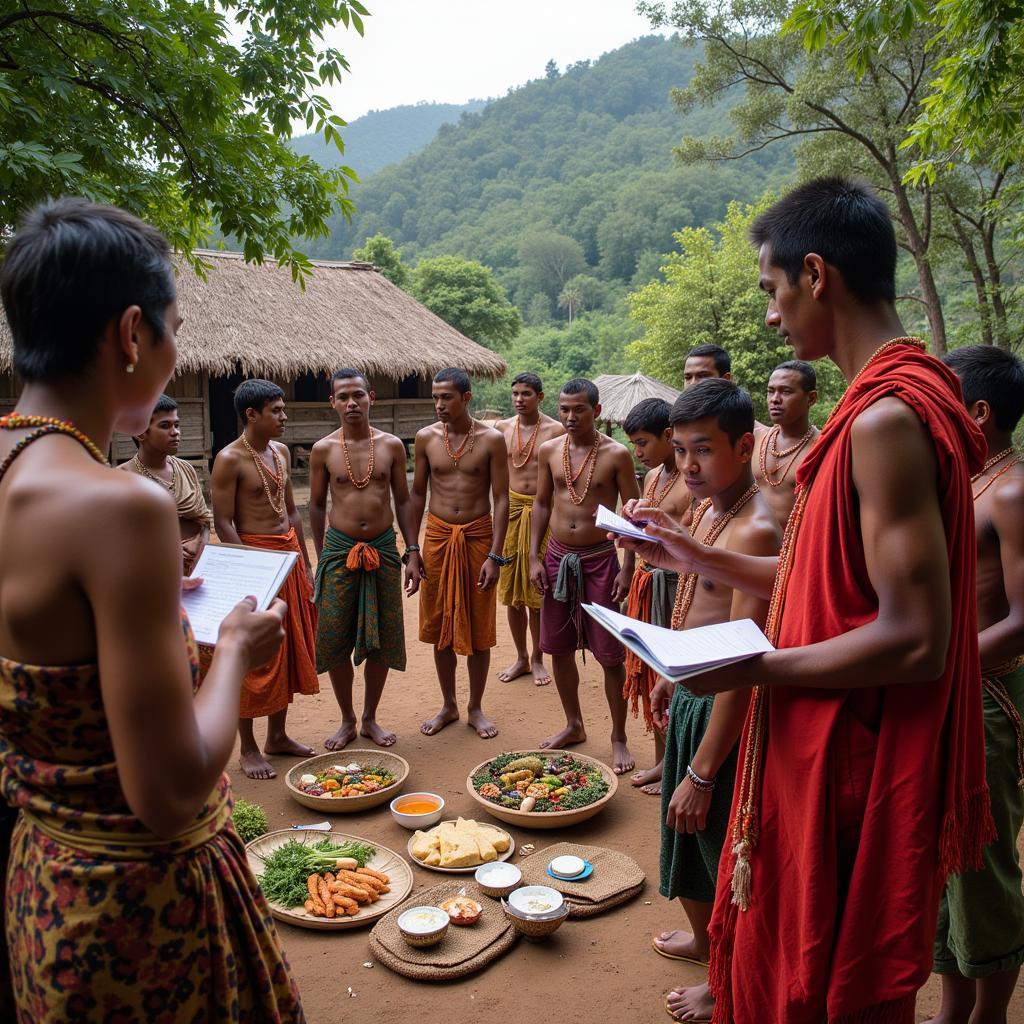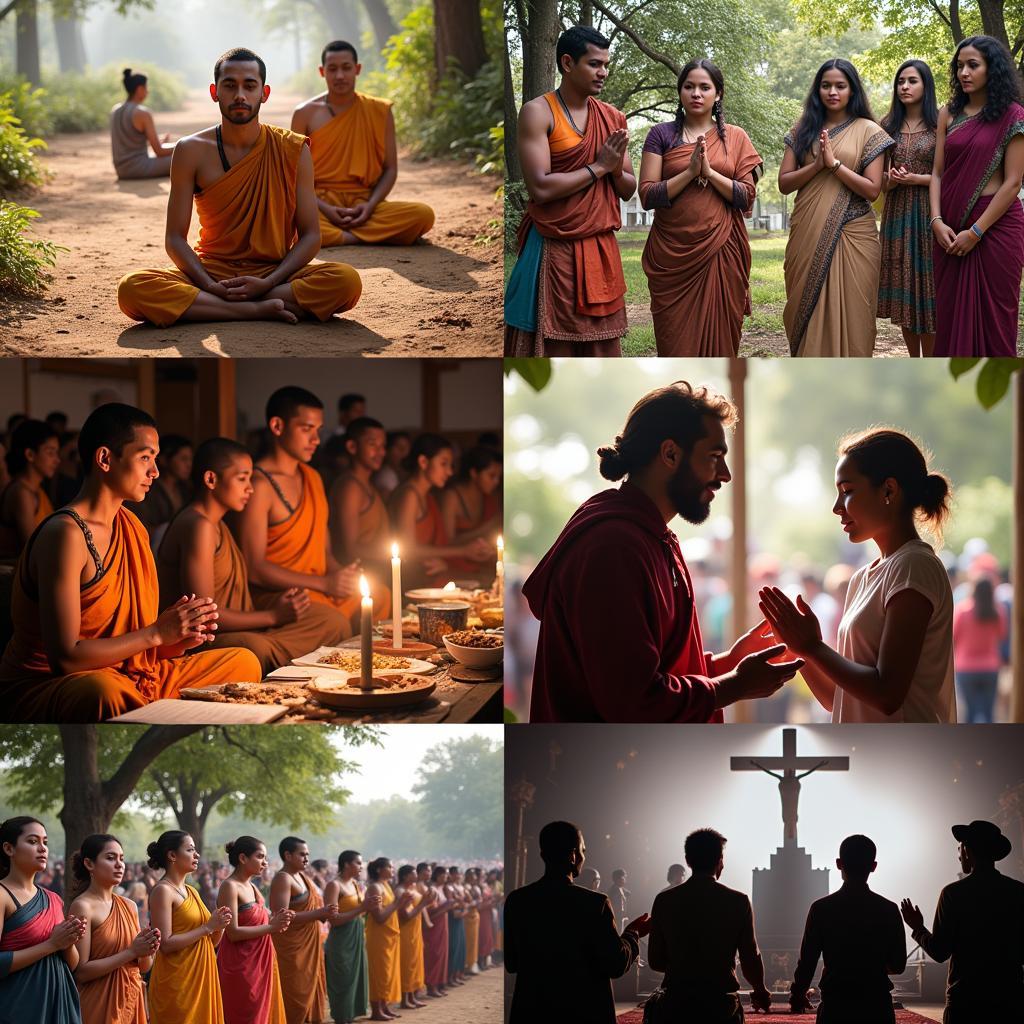Anthropology examines spirituality and religion in terms of the society’s organization, cultural practices, and systems of belief. Understanding the role of spirituality and religion within different societies provides crucial insights into how humans create meaning, build communities, and navigate the complexities of life. This exploration delves into the fascinating interplay between spiritual beliefs and the social fabric that shapes them.
How Anthropology Studies Spirituality and Religion within Society
Anthropologists approach the study of spirituality and religion not to judge the validity of beliefs, but rather to understand their social functions and how they intersect with other aspects of culture. They investigate how spiritual and religious practices contribute to social cohesion, conflict resolution, and the transmission of cultural values. This involves examining rituals, myths, symbols, and the social structures surrounding these practices. By employing ethnographic methods, including participant observation and interviews, anthropologists gain valuable insights into the lived experiences of individuals and communities, providing a rich and nuanced understanding of spirituality and religion’s role in society.
One key area of anthropological inquiry is the relationship between religion and social power. How do religious institutions and leaders influence social hierarchies, political systems, and economic activities? Anthropology examines how religious beliefs can be used to legitimize power structures or to challenge them.
Another important aspect is the role of ritual in maintaining social order and reinforcing group identity. Rituals, whether religious or secular, provide a framework for social interaction and often involve symbolic actions that express shared values and beliefs. Anthropology explores the ways in which rituals create a sense of community and belonging.
 Anthropologists studying a religious ritual
Anthropologists studying a religious ritual
The Impact of Societal Changes on Spirituality and Religion
Modernization, globalization, and technological advancements have profound impacts on spiritual and religious practices worldwide. Anthropology investigates how these forces shape the evolution of belief systems, the emergence of new religious movements, and the ways in which traditional practices adapt to changing social landscapes. The study of these dynamics provides critical insights into the complex relationship between culture, belief, and social change.
For example, the rise of the internet and social media has created new platforms for religious expression and community building. Anthropology explores how online communities shape religious identities and facilitate the spread of religious ideas across geographical boundaries. This research also considers the challenges posed by online radicalization and the use of digital platforms for religious intolerance.
Furthermore, the increasing interconnectedness of the global community has led to greater religious diversity in many societies. Anthropology examines how different religious groups interact and negotiate their place within multicultural contexts. This involves studying interfaith dialogue, religious conflict, and the ways in which religious identities intersect with other social identities, such as ethnicity, gender, and class.
 People using technology for religious practices
People using technology for religious practices
How Society’s Values Shape Spiritual and Religious Beliefs
Anthropology reveals how cultural values and social norms influence the development and expression of spiritual and religious beliefs. The concepts of good and evil, the afterlife, the nature of the divine, and the role of humans in the cosmos are often shaped by the specific cultural context in which they emerge. By comparing and contrasting different belief systems across cultures, anthropology sheds light on the diverse ways in which humans make sense of their place in the world.
Furthermore, anthropology considers the relationship between spirituality and morality. How do religious and spiritual beliefs shape ethical codes and social norms? What are the social consequences of adherence to or deviation from these codes? The study of morality within a cultural context provides valuable insights into the interplay between belief systems and social behavior.
Dr. Anya Sharma, a renowned cultural anthropologist specializing in religious studies, states, “Religion is not simply a set of beliefs, but a dynamic social force that shapes individual identities, community structures, and cultural values.” Her work emphasizes the importance of understanding religion within its social context to fully grasp its impact on human behavior and social organization.
 Diverse spiritual practices in different cultures
Diverse spiritual practices in different cultures
Conclusion
Anthropology examines spirituality and religion in terms of the society’s values, social structures, and cultural practices, providing a crucial framework for understanding the complex role of belief systems in shaping human societies. By exploring the interplay between spirituality, religion, and social life, anthropology contributes to a deeper understanding of human culture and the search for meaning in a diverse and ever-changing world.
FAQ
- What is the anthropological approach to studying religion?
- How does religion influence social power dynamics?
- How do rituals contribute to social cohesion?
- What is the impact of globalization on religious practices?
- How do cultural values shape spiritual beliefs?
- What is the relationship between spirituality and morality?
- How does anthropology contribute to understanding religious diversity?
Scenarios of Common Questions:
-
Scenario: A student is researching the role of religion in ancient civilizations.
-
Question: How did religious beliefs influence the political and social structures of ancient societies?
-
Scenario: A community leader is trying to understand the diverse religious practices within their community.
-
Question: How can different religious groups coexist peacefully and engage in productive dialogue?
Suggested Further Reading and Related Articles:
- “The Elementary Forms of Religious Life” by Emile Durkheim
- “The Golden Bough” by James Frazer
- “Purity and Danger” by Mary Douglas
Contact Us
For further assistance, please contact us at Phone Number: 02043854663, Email: societyforpeace@gmail.com, or visit our address at Zone 34, Bac Giang, 260000, Vietnam. We have a 24/7 customer service team available to assist you.
 using WordPress and
using WordPress and